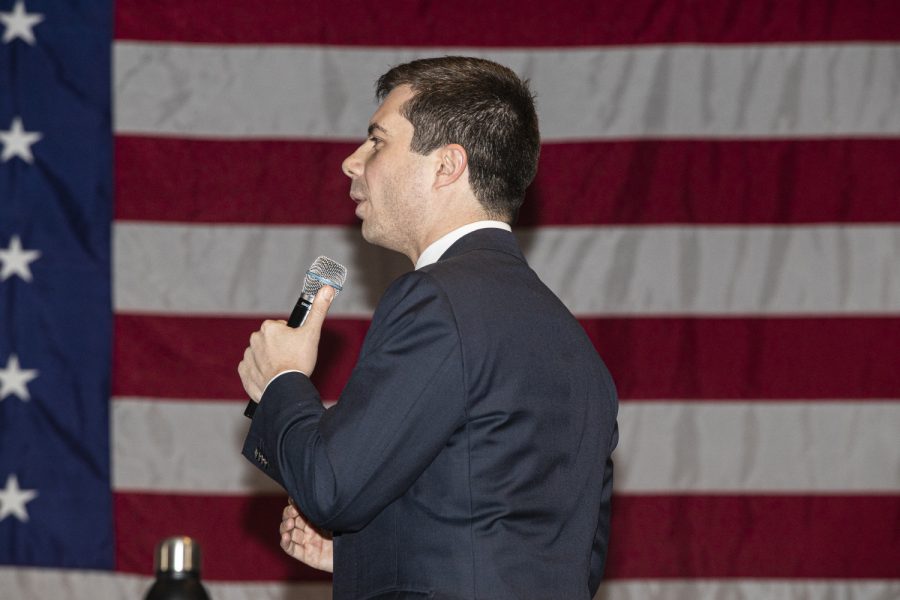Pete Buttigieg ends presidential bid
Pete Buttigieg ended his bid for the Democratic presidential nomination on Sunday, two days before Super Tuesday and after losing significant support in Nevada and South Carolina.
Former Mayor of South Bend Ind. Pete Buttigieg hosts a town hall at Cedar Rapids Veterans Memorial Building Armory on Tuesday, January 21st, 2020. Buttigieg is a democratic hopeful for the 2020 Presidential election.
March 1, 2020
Pete Buttigieg dropped his bid for the Democratic presidential nomination on Sunday, failing to keep his campaign’s momentum after narrowly winning the Iowa caucuses in early February.
In South Carolina’s primary on Saturday, Buttigieg took a distant fourth place, receiving no delegates. Buttigieg, the country’s first openly gay presidential candidate, was not able build a broad coalition of supporters. Buttigieg barely led in Iowa and held second place behind Bernie Sanders in New Hampshire, but lost significant support in Nevada and South Carolina — two of the more diverse early-voting states.
With Super Tuesday just two days away, FiveThirtyEight projected Buttigieg to take fifth place with 158 projected delegates. Buttigieg, former mayor of South Bend, Indiana, spent more than $74 million on his campaign, according to OpenSecrets. His campaign raised more than $81 million, with large contributions making up 56 percent of those funds.
A January Washington Post-Ispos poll showed Buttigieg receiving 2 percent of support from Democratic black voters, far behind former Vice President Joe Biden and Sanders. His career as mayor came under public scrutiny for the lack of diversity within the South Bend police department and the firing of the town’s first black chief of police.
Buttigieg’s narrow win in Iowa was contested by the Sanders campaign in the weeks following the caucuses, with both campaigns requesting recounts of precincts after Iowa’s official results were found riddled with inaccuracies. Delegate counts were corrected in 19 precincts, leaving Buttigieg’s final state delegate equivalent tally at 562.954, compared to the Vermont senator’s final 562.021. The number of national delegates did not change for either campaigns.



